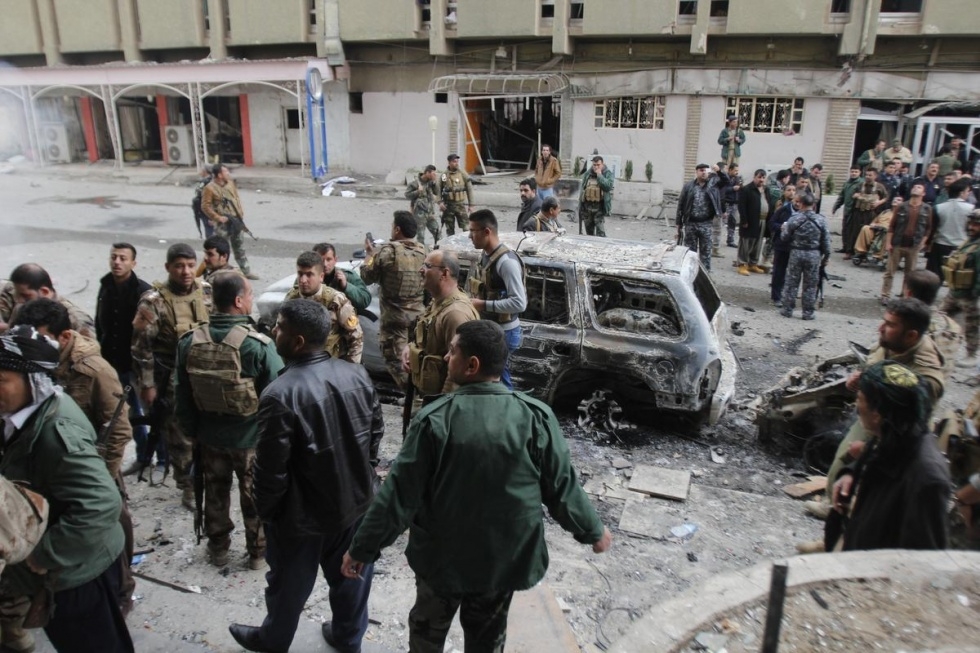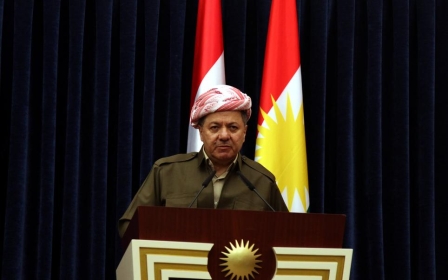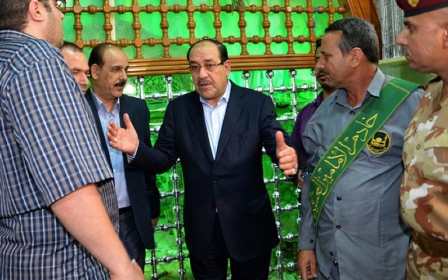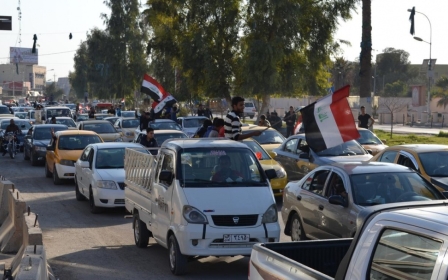Top officer killed as Iraq Kurds repel major IS attack

Iraqi Kurdish forces repelled a major attack by the Islamic State group in Kirkuk province that killed a top officer Friday, while violence elsewhere left at least 19 dead.
The IS assault outside of Kirkuk began at around midnight in dense fog, sparking fighting with medium and heavy weapons in which the militants were ultimately held off.
Kirkuk Governor Najm al-Din Karim said Kurdish forces, supported by US-led air strikes, "foiled the Daesh (IS) attacks" which were "carried out toward oil and gas facilities and stations . . . from three directions leading to the city of Kirkuk".
Damage to Kirkuk oil facilities would pose a serious problem for Iraq, which is counting on crude exports of 300,000 barrels per day from the oil-rich province in its 2015 budget.
Brigadier General Shirko Rauf and five other members of the Kurdish Peshmerga forces were killed and 46 more were wounded in the fighting, a police brigadier general and a doctor said, but the final casualty figure for Kurdish troops was unclear.
Officials put IS casualties at dozens of dead, but that could not be independently confirmed.
The Kirkuk province security committee announced a curfew beginning at 10:00 am (0700 GMT) Friday, but it was lifted later in the day, police said.
Dozens of Kirkuk residents fired weapons in the air to celebrate the victory over IS, witnesses said.
Militants struck inside the city itself on Friday, detonating a car bomb near security headquarters and wounding five people, a police colonel and the doctor said.
According to the colonel, armed suicide bombers tried to take up positions on the roof of a hotel in the city, but were killed by security forces before they could do so.
Suicide bombings
In Jalawla, an area in Diyala province south of Kirkuk that was retaken from IS at the end of last year, a suicide bomber attacked Peshmerga forces, killing seven and wounding seven more, Brigadier General Barzan Ali said.
Violence also struck Samarra, home to a revered Shiite shrine that was bombed in 2006, setting off a wave of Sunni-Shiite sectarian violence that killed tens of thousands of people.
One suicide bomber detonated a car bomb at a police checkpoint at an entrance to the city, while two more struck a police headquarters and a fourth bomber was shot dead.
The bombings and sporadic clashes between IS and security forces west of Samarra killed seven people and wounded 31, police and a doctor said.
In Baghdad, at least one bomb exploded in a used clothes market in the central Bab al-Sharji area, killing at least five people and wounding 17, officials said.
IS spearheaded an offensive that has overrun much of Iraq's Sunni Arab heartland since June, presenting both an opportunity for territorial expansion and a threat to the country's three-province autonomous Kurdish region.
Several Iraqi divisions collapsed in the early days of the offensive, clearing the way for the Kurds to take control of a swathe of disputed territory they have long wanted to incorporate into their region over Baghdad's objections.
But after driving south towards Baghdad, IS turned its attention to the Kurds, pushing them back towards their regional capital Erbil in a move that helped spark US strikes against the militants.
Bolstered by the air strikes as well as international advisers and trainers, Kurdish forces have clawed back significant ground from IS.
The conflict is redrawing some of the de facto internal boundaries of Iraq in favour of broader Kurdish control in the north.
New MEE newsletter: Jerusalem Dispatch
Sign up to get the latest insights and analysis on Israel-Palestine, alongside Turkey Unpacked and other MEE newsletters
Middle East Eye delivers independent and unrivalled coverage and analysis of the Middle East, North Africa and beyond. To learn more about republishing this content and the associated fees, please fill out this form. More about MEE can be found here.




